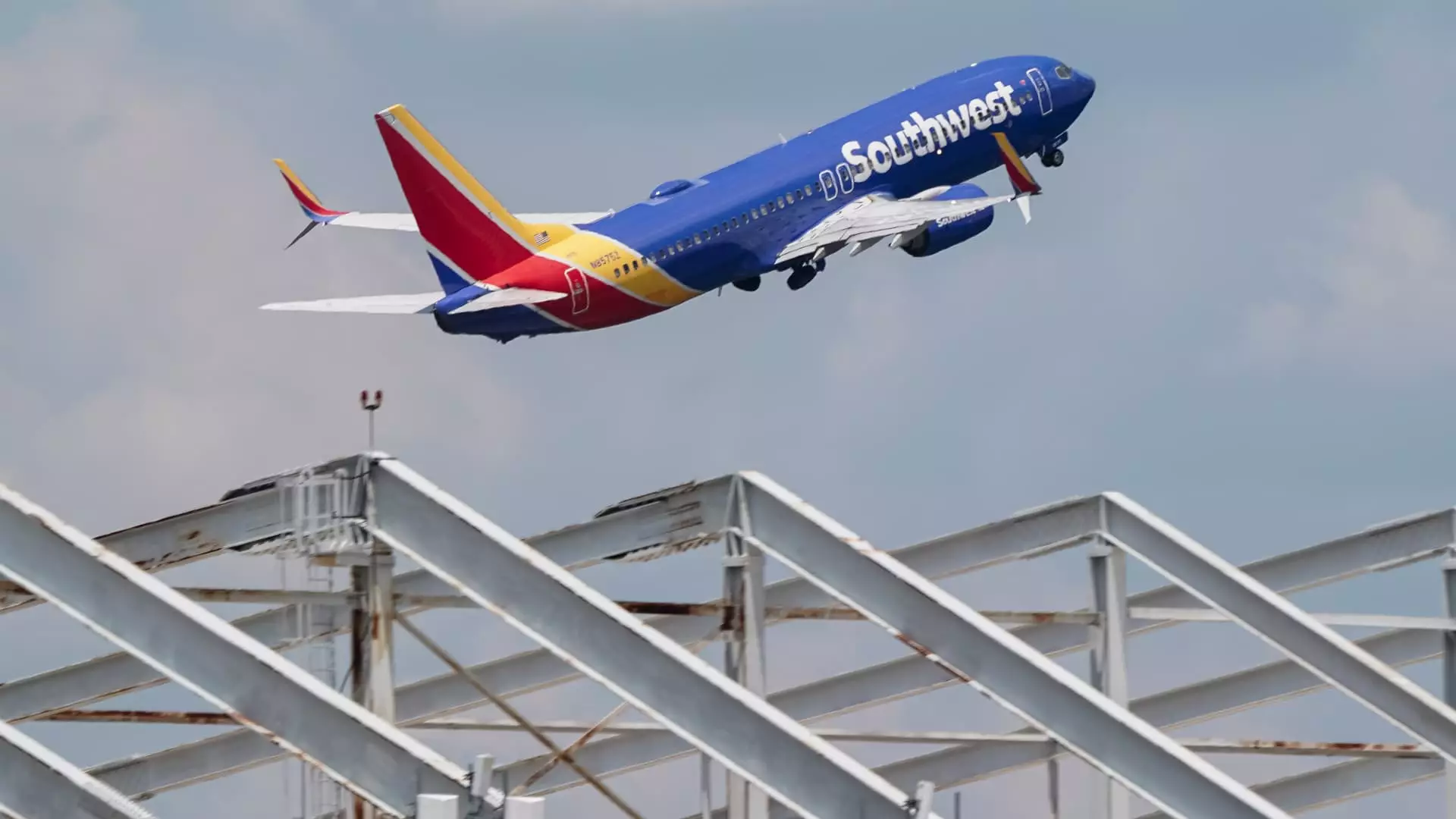In the third quarter of 2023, Southwest Airlines experienced a notable decline in profit relative to the same period last year. Despite this downturn, the airline managed to exceed Wall Street’s expectations, highlighting a significant effort to enhance revenue in a competitive environment. The carrier’s net income dropped by 65% year-over-year, totaling $67 million, equating to 11 cents per share. Analysts, however, had anticipated a far more challenging landscape, expecting the company would break even. This resilience in the face of adversity may reflect Southwest’s strategic adjustments aimed at preserving its market position amidst fluctuating demand.
A crucial aspect of Southwest’s recent business landscape involves its engagement with Elliott Investment Management. The activist investor firm had been advocating for changes within the company, leading to fears of a potential proxy battle. Instead, a deal was struck that not only allowed CEO Bob Jordan to retain his position but also resulted in six nominees from Elliott being appointed to the Board of Directors. This strategic alliance could potentially provide fresh insights and governance practices, contributing to a more robust response to market demands and operational efficiency.
Looking ahead, Southwest Airlines projects a unit revenue increase of 3.5% to 5.5% for the fourth quarter, albeit alongside a 4% contraction in capacity compared to the previous year. In contrast, the airline anticipates costs, excluding fuel, to rise by a staggering 13%. Such projections reveal the challenges posed by rising operational costs and could necessitate a recalibration of business strategies. Nevertheless, the company reported strong travel demand for the upcoming holiday season, which could bolster an otherwise rocky financial forecast, supporting the airline’s optimistic outlook on leisure travel trends.
Beyond tackling immediate profit concerns, Southwest Airlines has laid out a comprehensive three-year plan aimed at enhancing long-term profitability. A pledge to add $4 billion to earnings before interest and taxes by the year 2027 signifies a strategic focus on growth and sustainability. The airline has initiated a $2.5 billion stock buyback program and began cutting unprofitable routes, such as those in Atlanta. These moves indicate a proactive stance towards optimizing operational efficiency while returning value to shareholders, even amidst a challenging financial climate.
Furthermore, Southwest is set to abandon its traditionally embraced open seating policy in favor of a tiered seating arrangement whereby passengers can pay for their choice of seats or additional legroom. This significant shift is expected to reshape the customer experience and revenue model, marking one of the most substantial changes to their service in over five decades. By adapting to the evolving expectations of travelers and seeking new revenue streams, Southwest is positioning itself to thrive in a turbulent marketplace.
While Southwest Airlines faces considerable challenges reflected in their third-quarter profit, their strategic initiatives, partnership with Elliott, and projected revenue improvements signal a commitment to navigate the complexities of the aviation sector. The road ahead may be strewn with hurdles, but the company’s proactive adjustments and plans for innovation may pave the way for enhanced performance in the future.

